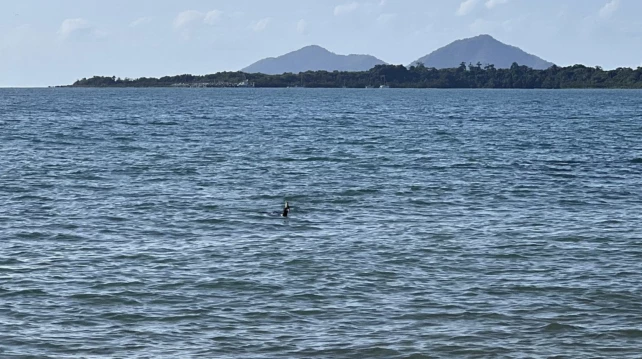 Source: brisbanetimes
Source: brisbanetimes
However, as the mysterious animal approached the shore, it was a juvenile cassowary, as confirmed by wildlife officials from the Queensland Department of Environment and Science.
Cassowaries are sizable, flightless birds native to the rainforests of Queensland and Papua New Guinea.
Standing at an impressive 6.5 feet tall and weighing around 167 pounds, these birds boast a distinctive appearance with a long, colorful neck, a helmet-like structure on their heads, and a dagger-shaped claw on their toes.
Cassowaries are often considered "the world's most dangerous bird" due to their formidable size, strength, sharp claws, and unpredictable behavior. According to information provided by the Library of Congress, the bird's behavior can be challenging to anticipate.
Stephen Clough, a wildlife officer with the Queensland Department of Environment and Science, stated that “cassowaries can swim and will take to the water to cross from one side of a river to the other, or if they feel threatened by domestic dogs or another cassowary through a territorial dispute.”
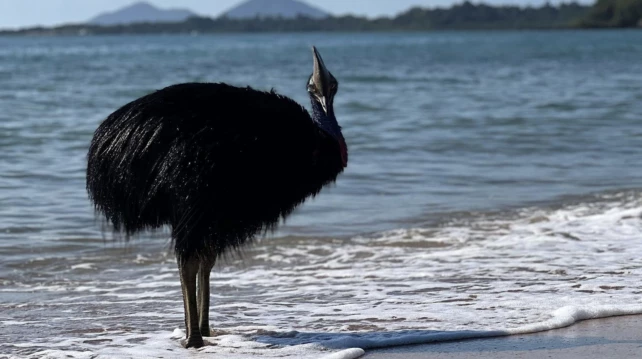 Source: brisbanetimes
Source: brisbanetimes
The exact reason for this particular cassowary's aquatic adventure remains unknown. But it surely left observers astonished by the footage capturing this rarely-seen behavior.
The campground’s host, Nikita McDowell, filmed the cassowary’s “unexpected ocean swim,” officials said.
In the footage shared on social media, the large bird can be seen gracefully bobbing the waves, with only its head and neck visible from a distance, creating a periscope-like image.
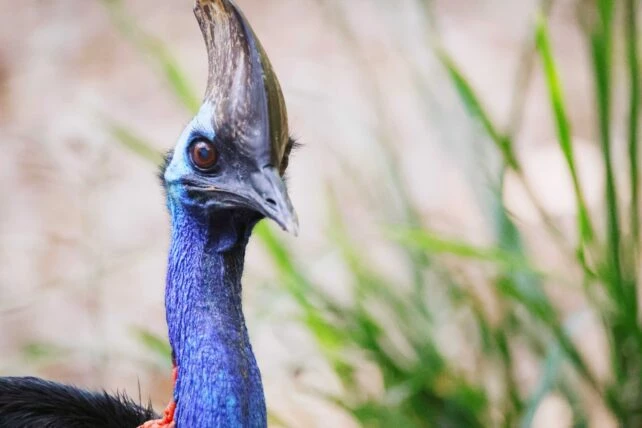 Source: brisbanetimes
Source: brisbanetimes
As the cassowary reached the shore, its full brown-black body emerged, showcasing its distinctive features. Its head has a mohawk-like helmet structure, and this cassowary has hints of pink and blue coloring on its neck.
McDowell described this scene and emphasized how the cassowary just floated to shore until its feet could touch the ground. Besides, the cassowary also appeared to look at the camera several times, as video footage shows.
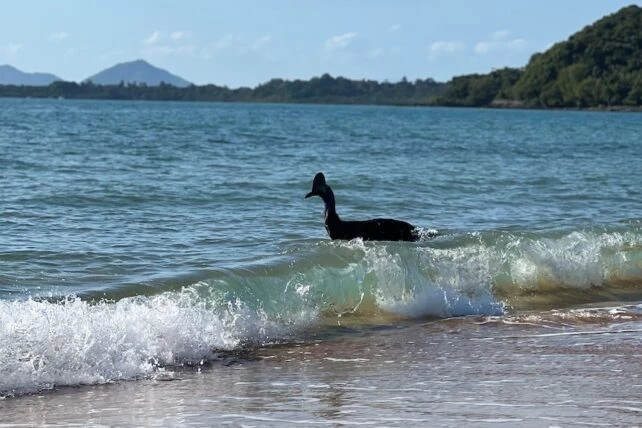 Source: brisbanetimes
Source: brisbanetimes
Imagine witnessing the astonishing sight of a cassowary taking an unexpected dip in the ocean, only to later find it seeking respite beneath a tree, visibly exhausted.
Nikita McDowell described the bird as standing in the shade with shaky legs for about half an hour before mysteriously disappearing.
“I knew it wasn’t going to have the energy to attack me or anything,” she told the Australian Broadcasting Corp. “I am just so happy it’s moved on and is safe and healthy."
Stephen Clough, a wildlife officer, added that “there’s an estimated 4,000 cassowaries remaining in Queensland, and they face numerous threats to their survival, including habitat loss, vehicle strikes, and domestic dog attacks."
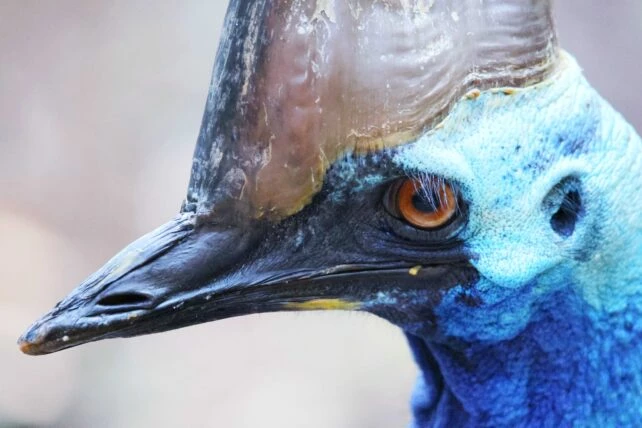 Source: brisbanetimes
Source: brisbanetimes